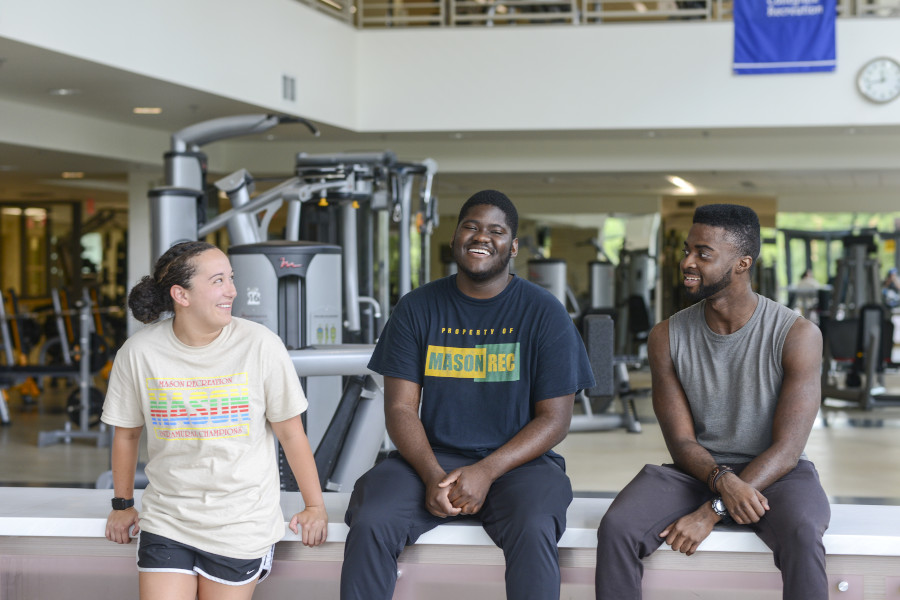How campus wellness centers can help students cope with stress

For many young adults, the start of college is an exciting time of change signifying the start of a new chapter in their lives. But the first year of college can also be a stressful time as individuals adjust to being away from their families and try to make new friends—all while struggling to meet the demands of a rigorous academic course load. First-year college students making their way through this transition may feel isolated and may lack the social connections and support network of peers they once relied upon in high school. This can trigger feelings of anxiety, depression, and lead to unhealthy changes in sleeping patterns, poor dietary habits, inferior academic performance, and behaviors that can exacerbate depression. Existing studies show that students who are physically active are less likely to experience depressive symptoms. Studies also suggest that college campus wellness centers, which include recreation centers, fitness centers, field houses, and associated indoor and outdoor recreation facilities, can help students improve not only their physical well-being through exercise, but can provide opportunities for students to establish social connections through recreational sport activities. Researchers say this can improve students’ mental and psychological well-being, reduce stress, foster a sense of belonging, and lead to an overall positive experience on campus.
Researchers examine the use of campus wellness centers by first-year students and the related impacts on depression
Faculty now with George Mason University’s School of Sport, Recreation, and Tourism Management (SRTM) conducted a study at a Midwest college campus in the fall of 2019 to determine if university wellness center usage by first-year students affected the level of depressive symptoms they experienced. The study included 172 first-year students who volunteered to complete a patient health questionnaire consisting of eight questions used to identify symptoms of depression and associated levels of severity. Students were also asked to report their use of the campus wellness center including the frequency of their visits and how often they participated in eight different activities available there. These included cardiovascular training, weight training, open recreation, group fitness, intramural sports, sports clubs, outdoor adventures, and personal training.
Study results show differences in levels of reported depressive symptoms
An analysis of the study results showed that 74 students used the campus wellness center often (at least once a week). Of these, 61% had no symptoms of depression. In contrast, 66 students reported that they never used the campus wellness center and of these, only 32% had no symptoms of depression. These numbers suggested that students who did not use the campus wellness centers had higher levels of depression approaching a two-fold difference.
There were also differences in the levels of depressive symptoms reported by students who participated in open recreation or intramural sports, compared with students who did not participate in these activities. To illustrate, 19 students reported that they sometimes (defined as a few times a month) participated in open recreation and 17 indicated they often participated in this activity. Of those who said they sometimes participated, 53% had no depressive symptoms while within the group of those students who participated often, 77% reported no symptoms of depression. By comparison, of the 120 students who never participated in open recreation, 42% had no symptoms of depression. Regarding intramural sports, 12 students reported that they sometimes participated in this activity while 22 participated often. Of those who sometimes participated, 67% reported no symptoms of depression while in the group of those who participated often, 77% had no depressive symptoms. Again, by comparison, of the 126 students who indicated that they never participated in intramural sports, only 42% reported being free of depressive symptoms.
In other findings, cardiovascular and weight training programs were shown to be the most popular activities among those students who frequently visited the wellness center. However, these two activities did not appear to influence the level of depressive symptoms reported by students.
Study authors conclude that the use of campus wellness centers can help students cope with major stressors and life transitions
Researchers concluded that students who used the campus wellness center more frequently reported fewer depressive symptoms compared to those who rarely or never used the facility at all. This suggests that campus wellness center usage could improve the overall mental health and well-being of students. The study authors maintain that establishing a habit of participating in wellness center activities could play a key role in helping students cope with major life transitions, particularly first-year college students who are contending with any number of stressors as they adjust to an unfamiliar environment. Researchers also point out that students who participated in open recreation or intramural sports reported fewer depressive symptoms compared with those who engaged in more popular activities available at the wellness center such as cardiovascular and weight training. One reason for this may be that unlike open recreation and intramural sports, the more specialized cardiovascular and weight training programs while popular do not provide the same opportunities for social interactions and connections—two components essential to helping a person overcome feelings of depression.
To learn more about how campus wellness centers can help students cope with stress, read this article by faculty from George Mason University’s School of Sport, Recreation, and Tourism Management (SRTM). The Recreation Management program at SRTM offers opportunities in the study of how a healthy lifestyle and environment can be promoted. We invite you to visit the Recreation Management program website for more information on our degree offerings.
